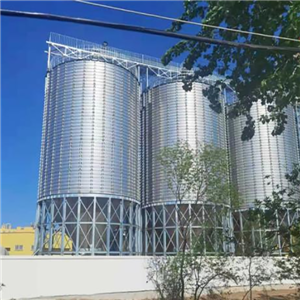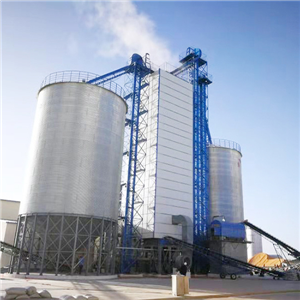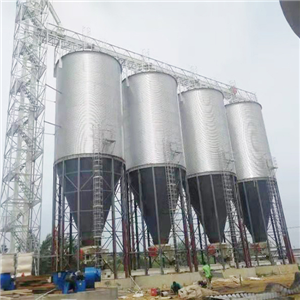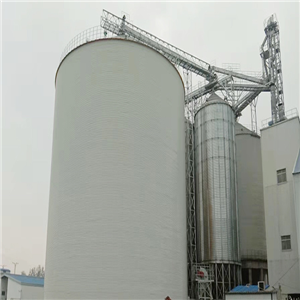Top 5 Factors to Consider When Buying Grain Silos
For farmers, agribusinesses, and food storage companies, investing in grain silos is a significant decision that can impact long term operations and profitability. With numerous options available in the market, it's crucial to understand the key factors that should guide your purchase. Liaoning Qiushi Steel Silo Co., Ltd., a renowned name in the storage solutions industry, emphasizes the following five essential aspects to consider when buying grain silos.
1. Storage Capacity: Plan for Present and Future Needs
The first and perhaps most critical factor is determining the appropriate storage capacity for your grain. This decision should be based on your current production levels, future growth projections, and the types of grains you plan to store. A small scale farmer with limited annual production might opt for a silo with a capacity of a few hundred tons. However, large scale operations that anticipate expansion in the coming years may need silos capable of holding several thousand tons.
Liaoning Qiushi offers a wide range of grain silos, from compact models suitable for small scale users to massive structures for industrial level storage. Their modular designs are particularly advantageous as they allow for easy expansion. For example, if your business experiences unexpected growth, additional grain silo sections can be added without major disruptions, ensuring that your storage capabilities keep pace with your needs.
2. Material Quality: Ensure Durability and Longevity
The material used in constructing grain silo directly impacts their durability, strength, and resistance to environmental factors. Steel is a popular choice due to its excellent load bearing capacity and corrosion resistance. Liaoning Qiushi uses high grade galvanized steel in its silos. The galvanization process coats the steel with a layer of zinc, providing enhanced protection against rust and extending the grain silo 's lifespan significantly.
The thickness of the grain silo 's steel also plays a vital role. Thicker steel panels can withstand greater pressure from the stored grain and are more resilient to harsh weather conditions, such as strong winds and heavy snow. Liaoning Qiushi's grain silos feature precisely engineered steel structures, with some models having a continuous spiral wound edge that is several times thicker than the base material.
3. Supplier Reputation: Partner with Trusted Experts
Selecting a reliable supplier is key to a successful grain silo purchase. A reputable supplier like Liaoning Qiushi brings years of industry experience, technical expertise, and a commitment to customer satisfaction. You can assess a supplier's reputation by looking at customer reviews, testimonials, and case studies.
Liaoning Qiushi has an extensive portfolio of completed projects across different regions and industries. Their satisfied customers often praise the company for its high quality products, timely delivery, and excellent after sales service. By choosing a well established supplier, you can be confident that you'll receive not only a top notch product but also professional support throughout the purchasing and installation process.
4. Cost - Effectiveness: Balance Initial and Long Term Expenses
While the upfront cost of a grain silo is an important consideration, it's essential to look at the overall cost effectiveness. A cheaper grain silo might seem appealing initially, but if it requires frequent maintenance, repairs, or replacement due to poor quality, it could end up costing more in the long run.
Liaoning Qiushi offers grain silos that combine competitive pricing with high quality construction. Their efficient manufacturing processes and economies of scale enable them to provide cost effective solutions without sacrificing quality. Additionally, their silos are designed to be energy efficient, reducing operational costs over time.
5. Location and Site Requirements: Optimize for Functionality
The location of your grain silo and the suitability of the site are often underestimated factors. The silo should be located in an area that allows for easy access for loading and unloading equipment, as well as transportation vehicles. It's also crucial to ensure that the site has a stable foundation to support the weight of the filled grain silo.




